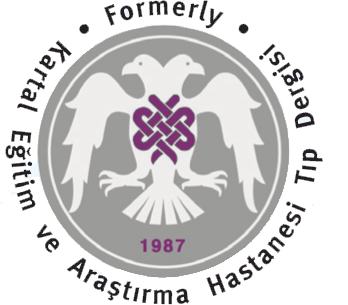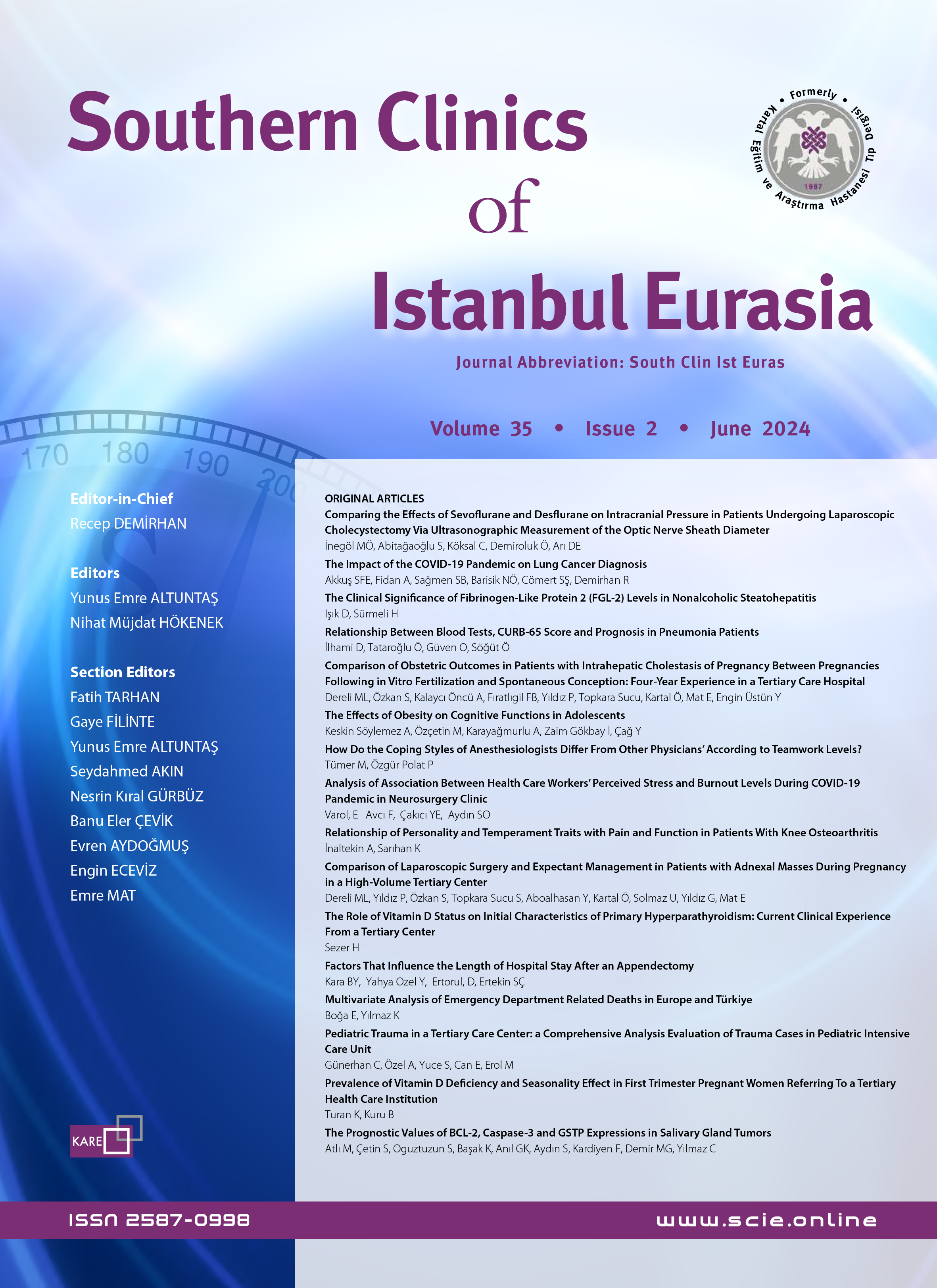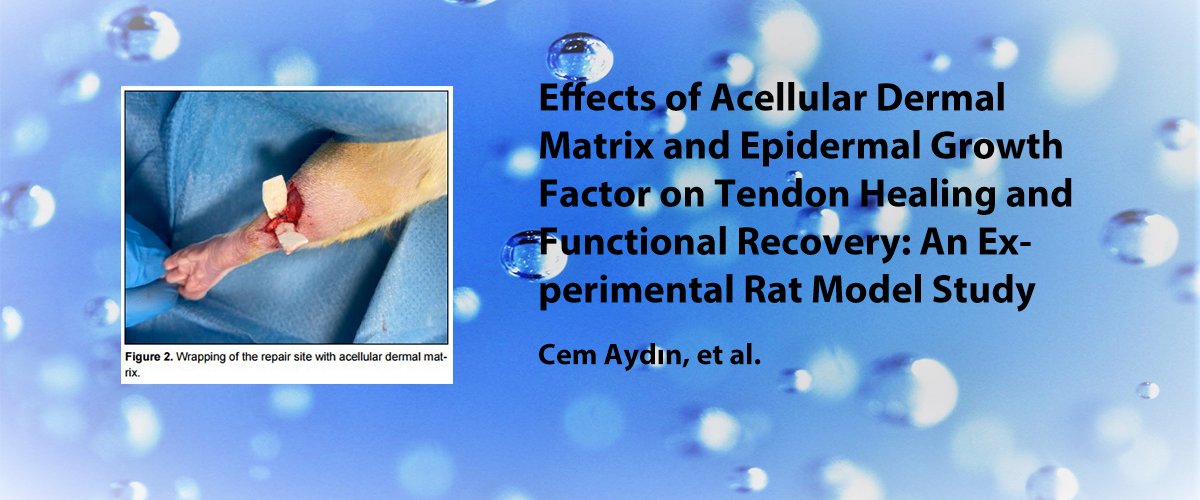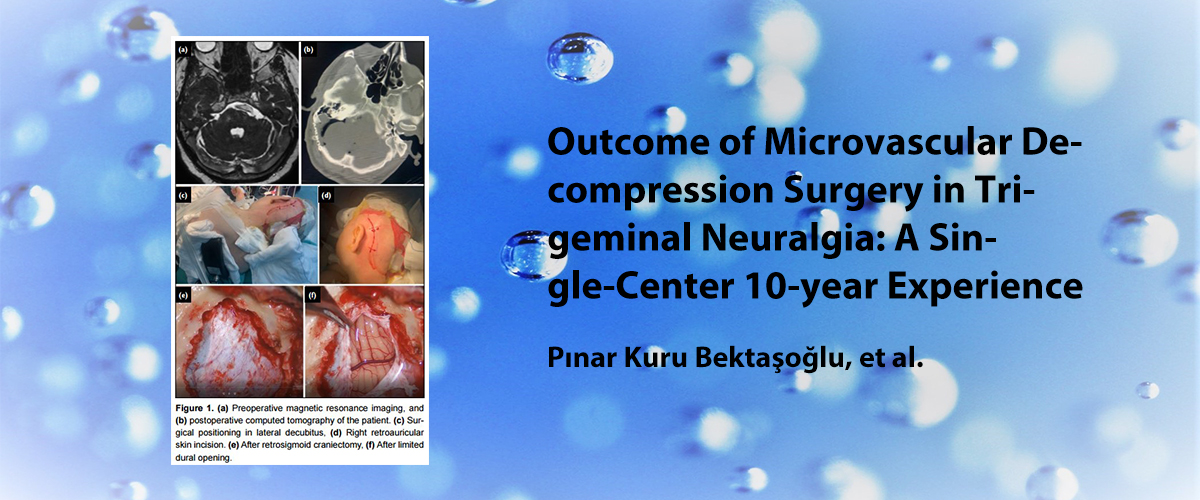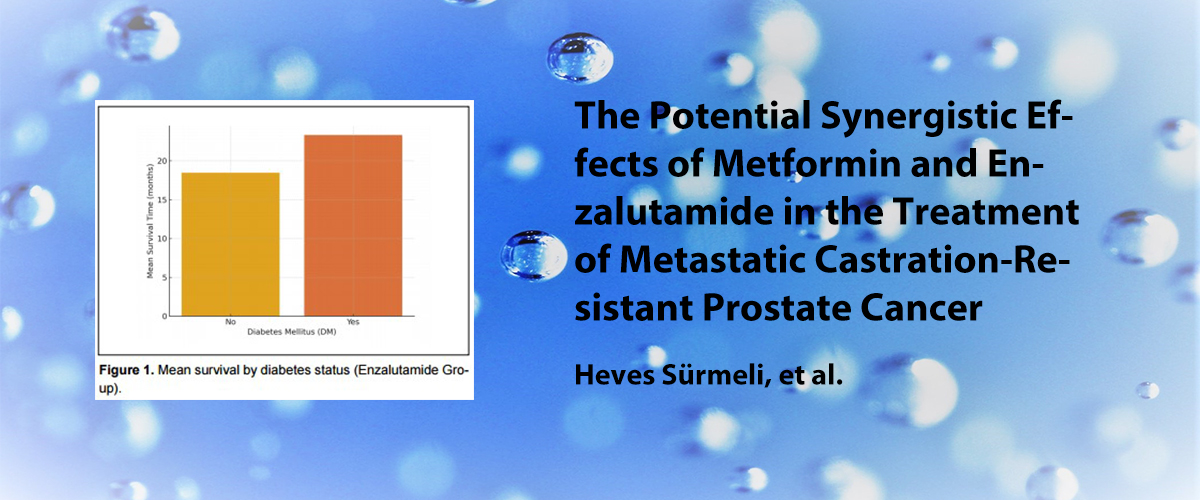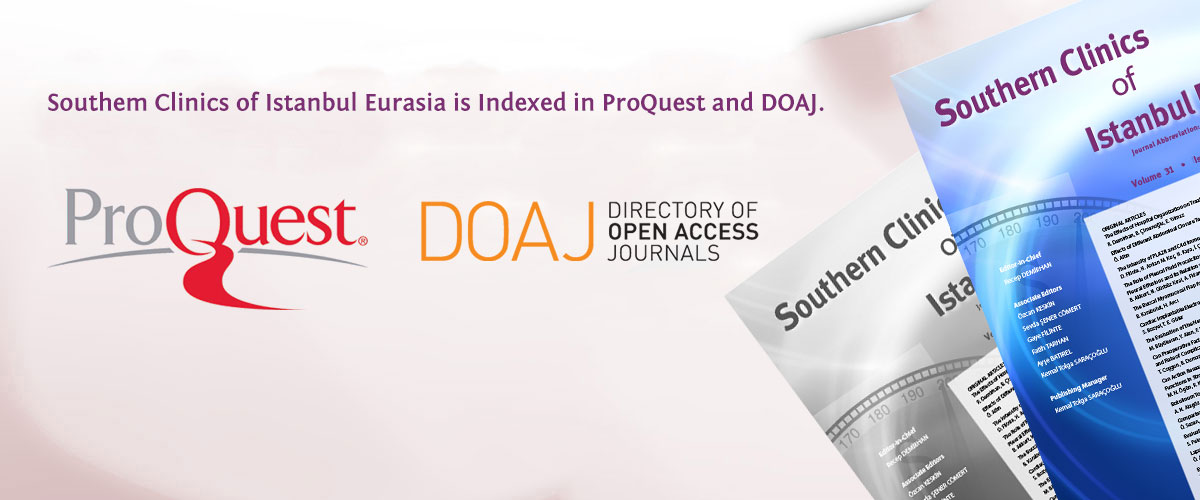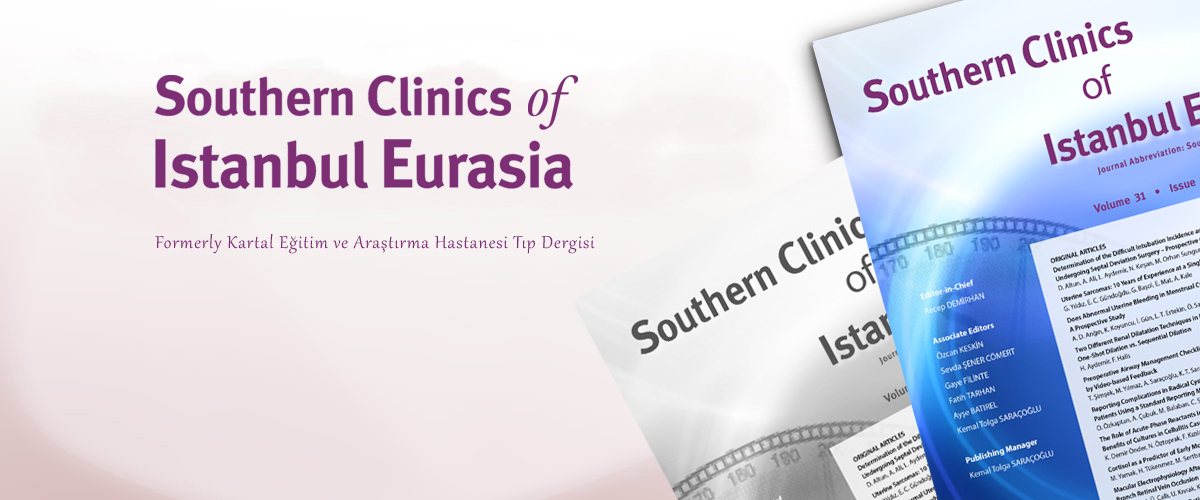ISSN : 2587-0998
COVID-19 Pandemisinin Toplum Ruh Sağlığı Merkezine Kayıtlı Şizofreni Hastaları Üzerindeki Etkisi
İsmail Koç1, Ebru Akbuğa Koç21Kartal Dr. Lütfi Kırdar Şehir Hastanesi, Adatepe Toplum Ruh Sağlığı Merkezi2Yeditepe Üniversitesi, Fizyoterapi Ve Rehabilitasyon Bölümü
GİRİŞ ve AMAÇ: COVID-19 pandemisinin Toplum Ruh Sağlığı Merkezine kayıtlı şizofreni hastaları üzerindeki etkisinin depresyon, intihar riski ve şiddete meyil açısından incelenmesi amaçlanmıştır.
YÖNTEM ve GEREÇLER: Çalışma Toplum Ruh Sağlığı Merkezine (TRSM) kayıtlı ve düzenli olarak takibi yapılan hastalar üzerinde yapılmıştır. Çalışmaya DSM-V (American Psychiatric Association 2013)e göre şizofreni tanısını karşılayan ve dahil edilme kriterlerine uyan yüz sekiz birey üzerinde gerçekleştirilmiştir. Çalışmaya katılmaya yazılı olarak onam veren bireyler sırasıyla Covid-19 pandemi döneminde hastane yatışı gerçekleşen (n=39), hastane yatışı olmayan ancak acil eylem planı yapılan (n=37) ve yatış veya acil eylem planı yapılmayan stabil hasta (n=32) şeklinde üç gruba ayrılmıştır. 18-65 yaş arasında olan, TRSMden hizmet alıyor olan, en az iki yıldır şizofreni tanısı almış olan, hastalığın aktif döneminde olmayan, organik mental bozukluğu olmayan, ek psikiyatrik hastalığın olmayan, okur-yazar olan bireyler çalışmaya dahil edilmiştir. Çalışmada hastaların klinik ve sosyodemografik bilgilerini içeren anket, Calgary Şizofrenide Depresyon Ölçeği (CŞDÖ), Buss-perry Saldırganlık Ölçeği (BPSÖ) ve İntihar Olasılığı Ölçeği (İOÖ) kullanılmıştır.
BULGULAR: CŞDÖ ve BPSÖ skorlarında gruplar arasında istatistiksel açıdan anlamlı fark bulunurken (p<0.05), İOÖ toplam skorunda ise gruplar arasında anlamlı bir fark olmadığı saptanmıştır (p>0.05). BPSÖ alt boyutlarda fiziksel, sözel saldırganlık ve öfke açısından gruplar arasında anlamlı bir farklılık bulunmazken (p>0.05), düşmanlık alt grubunda ise istatistiksel açıdan anlamlı bir farklılık saptanmıştır (p<0.05). İOÖnde Olumsuz benlik ve tükenme, düşmanlık alt boyutlarında gruplar arasında istatistiksel açıdan anlamlı bir fark bulunmaz iken (p>0.05), hayata bağlılıktan kopma alt boyutunda ise gruplar arasında anlamlı bir farklılık bulunmuştur (p<0.05). Eğitim düzeyi ve CŞDÖ değerleri arasında istatistiksel açıdan anlamlı negatif yönde korelasyon saptanmıştır. (r: 0,451 p: 0.025).
TARTIŞMA ve SONUÇ: Çalışmamızda Covid-19 pandemi döneminde yatış yapan veya yatış yapmayan ama acil müdahale gerektiren hasta gruplarının stabil takipli hastalara göre CŞDÖ ve BPSÖ toplam skorlarının istatistiksel açıdan anlamlı bulunmasının TRSM takipli depresyona veya şiddete meyilli olan şizofreni hastalarının pandemi döneminden önemli derecede etkilendiklerini ve tedavi takiplerinin daha önem arz ettiği sonucunu göstermektedir.
The Impact of the COVID-19 Pandemic in Schizophrenia Patients Registered with the Community Mental Health Center
İsmail Koç1, Ebru Akbuğa Koç21İstanbul Kartal Dr. Lütfi Kırdar City Hospital, Adatepe Community Men-tal Health Center, İstanbul, Türkiye2Department of Physiotherapy and Rehabilitation, Yeditepe University, İstanbul, Türkiye
INTRODUCTION: The aim was to examine the effect of the COVID-19 pandemic on schizophrenia patients registered at the Community Mental Health Center (CMHC) in terms of depression, suicide risk, and tendency to violence.
METHODS: The study was conducted on patients registered at the CMHC who were regularly followed up. It was carried out on one hundred and eight individuals who met the diagnosis of schizophrenia according to the DSM-V and the inclusion criteria. Individuals were respectively classified as hospitalized patient group during the Covid-19 pandemic period (n=39), non-admitted patients with an emergency plan without hospitalization (n=37), and stable patient group (n=32). In the study, the Socio-Demographic Questionnaire, the Calgary Depression Scale for Schizophrenia (CDSS), the Buss-Perry Aggression Questionnaire (BPAQ), and the Suicide Probability Scale (SPS) were used.
RESULTS: While there was a significant difference between the groups in CDSS and BPAQ scores (p<0.05), there was no significant difference between the groups in the total score of SPS (p>0.05). There was no significant difference between the groups in terms of physical, verbal aggression, and anger in the BPAQ sub-dimensions (p>0.05), but a significant difference was found in the hostility subgroup (p<0.05). While there was no significant difference between the groups in the sub-dimensions of negative self and exhaustion, hostility in the SPS (p>0.05), a difference was found between the groups in the sub-dimension of disconnection from life (p<0.05). Also, a significant negative correlation was found between education level and CDSS values (r: 0.451; p: 0.025).
DISCUSSION AND CONCLUSION: In our study, the significant difference found in CDSS and BPAQ total scores of the three groups showed that schizophrenia patients with CMHC follow-up who tend to depression or violence were significantly affected by the pandemic period, and their treatment follow-up was more severe.
Makale Dili: İngilizce

